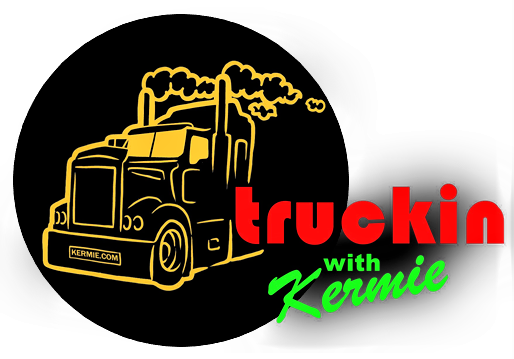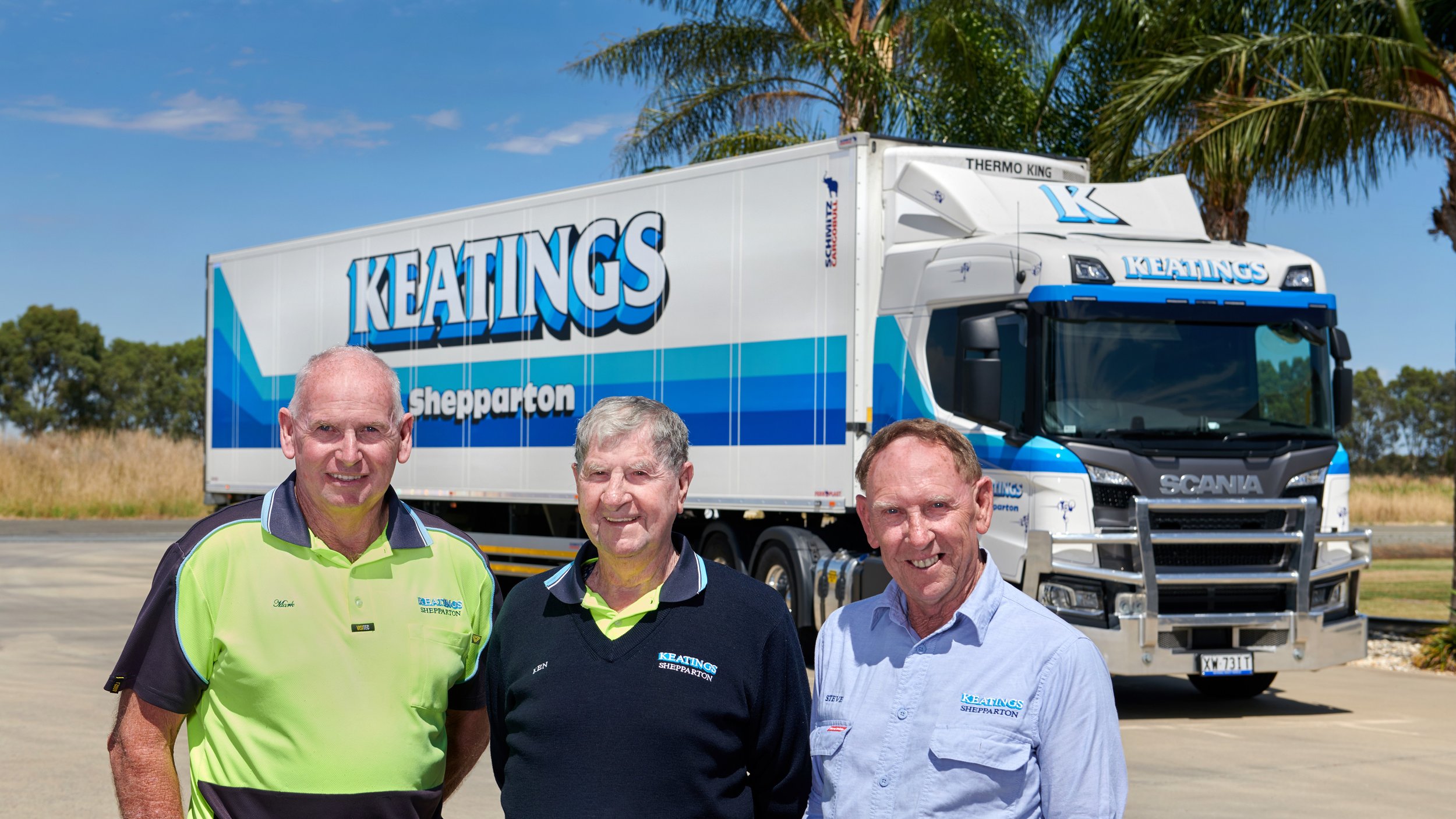Doug McIntyre - an Australian Trucking Pioneer
When we think of Australian outback pioneers, names such as Burke and Wills instantly come to mind. Along with Blaxland, Wentworth and Lawson and others, these men are indelibly etched into Australian history and are remembered through history books and monuments reflecting their tenacity and courage.
There are others though, cut of the same cloth, whose exploits go largely unheralded. These latter-day pioneers faced the same unforgiving and tough terrain of their forefathers. They travelled without communication and they opened up the wealth of the outback for a nation.
Just as Tony Nivens and his Cold Storage Company opened up the Melbourne – Darwin run in their sphere, McIntyre Freight Lines was a pioneer of the Brisbane – Darwin route in general freight.
Doug McIntyre came off the land, and if his father had had his way, there he would have stayed. The only condition on which he was allowed to leave was if he gained a trade. Doug's father who had trucks in the 1920s at McKinley in western Queensland (he took the first trucks out there) also added a codicil: "You're not to get into trucks."
Doug's solution was to join the army for six years. It was his excuse to learn a trade and see the world. Upon being demobbed in 1957, he promptly bought two trucks, which were the beginning of McIntyre Freight Lines. Based in Brisbane, the business ran from there to Darwin from 1964 until Doug sold out in 1971. In those intervening years he had built up 75 registered pieces of equipment.
“We pioneered that run. Co-Ord used to do it. Ansett and TNT would load one or two 10 foot boxes each week – which was bugger all really – and put it on the train to Mount Isa. Outback Transport would pick it up from there and transport it over to Larrimah in the Territory, putting it back on the train for the last stint into Darwin. Co-Ord ran from Adelaide as well and because they had the rail through to Alice Springs, the bulk of the freight used to go from Adelaide.
"So I started. Everybody said you couldn't do it – it was too far, too hot, very few roads and when the wet came, you know, you were stuck out there. And of course the wet lasted for three months of the year. The year I started it didn't rain. We used to do it in five days. By the end of that year we had built up a steady business, running if my memory serves me correctly, twice a week."
At the end of that first year the business had grown to four semis and seven flat tops. It was a big investment by a young man on a dangerous route.
"I could see that there was no money to be made in running down south – that's where everyone else was running. What I found was a niche market and luckily it developed for me. It's ironical that both Ansett and TNT tried to buy me out later, because I had the lion's share of the business. We had built it up to the point where we were running daily to Darwin. We introduced road trains into general freight. Before that, the only road train operators were the Cattlemen – in Queensland at any rate."
Doug's first semi was an Inter followed by a Mack.
"Then I had to get something else and I didn't like the way Mack had treated me. I didn't like the way Kenworth treated me, so I told them to get stuffed. A Peterbilt came along and I grabbed that. The bloke who owned it originally had hit a train at Coonabarabran. He knocked the engine off the rail line and the cab ended up in a paddock. They wrote the truck off. Someone rebuilt it and I bought it in late 1964. It kept going and going and so we bought another out of Adelaide. By this time I was no longer at war with Kenworth and Mack, but I went for White trucks with Caterpillar motors. I've gotta say though, that Peterbilt was my favourite. They are a distinctive looking truck. I just loved them."
Given the terrain and the climate, it was a testament to Doug's business that it was said that people could set their clocks by the distinctive green and white McIntyre Freight Line trucks passing through.
"There were other people taking the odd load up there and I wasn't into cold storage, so I didn't get involved in that area. But we were the only ones who ran a regular general freight service. We built it from there and as it turned out it was the beginning of the end for Co-Ord on that East-West run because they just couldn't compete with our five-day trips.
"Some of those trips across the outback could be hairy, particularly in the wet season but at any time really. There were no cars out there – there was bugger-all on the road, the roads were shit house and there was no communication."
Doug's business was also good for Queensland. When he commenced operations the state would have been lucky to have been shipping out 10 tons of freight a week. At its peak, McIntyre Freightlines was moving 500 tons.
"That's a lot of road trains that came into Queensland, which was good for the state. It also gave the Territory a fast, reliable general freight service which they'd never had before. It allowed them to develop – and they did. It really did start to kick on from that point."
An adjunct to the Darwin run was the servicing of the Dimiji aboriginal church mission in the Gulf of Carpentaria.
"They came to me one day and asked if I would be interested in taking their supplies up there? I said where is it? They said, 'Up the road a bit.' Up the road a bit was 100 miles south-west of Burketown.
"At the time, whatever they ordered would take four months to arrive, and when it did half of it was missing. Transported by ship, some would disappear from the wharves in Brisbane. More would go missing on the train from Brisbane to Cairns where it again sat on the wharf and more gear would go walkabout. It was then put on a ship that ran around the top and eventually it would get to Maroondan There, the locals would help themselves to a bit. Finally mission trucks would come down to pick it up. The locals on the road back to the mission would always seem to know when the truck was coming by, and even more disappeared. It was lucky there was anything left by the time it got to the mission. Their insurance bill was horrendous.
"I asked them what the roads were like and they said, 'Well, there's not too many roads but a lot of bull dust.' And believe me there was! Anyway, we had a go at it. We sorted out a rate and I did it for 20 years. It changed the way those boys lived up there because they got what they ordered and they got it in 3 to 4 days."
Selling the business in 1971, Doug went looking for new horizons. He had some refrigerated containers accrued during his transport career which he would hire out.
"You could never get a crane and the truck together at the same time to load or unload. I was actually trying to make some sort of loader myself when I picked up a magazine and saw this bloody trailer with cranes on it in New Zealand, manufactured by a company called Steelbro. I hopped on a plane and flew across the ditch to see them. I stitched up a handshake deal and went into the importation business."
Doug's Container Transfer Equipment Sales Australia had a 20 year relationship with Steelbro until that company decided to go it alone. It was a bad move on their part as they lasted barely a year before going down the tube.
In between Doug's 'flirtations' with the transport industry he also managed to run two farms and try his hand at land development. These days his garage contains a couple of military GMC's from the Korean War, some World War II army jeeps, a 1950 Chev 5 tonner, a Farmaway tractor and, not surprisingly, that Peterbilt that he bought way back in 1964.
At the time of this interview in 2013, Doug had just received some bad news. When I asked what the future held in store for him, he replied..
"Spending time with my wife, holding hands – which we do a lot of anyway. I'm 80 years old and you can't expect to carry on can you. A few days ago I got the news. Asbestosis. We carried thousands of tons of the stuff. I'll live this last period of my life like I've never lived before. I can accept it – no choice. I don't really have any complaints. I've lived a pretty charmed life. I probably shouldn't have been here ten or a dozen times."
Everything Doug McIntyre did in his life has changed the life of others for the better. His guts, determination and endeavour opened up parts of Australia hitherto divorced from the rest of the country.
"To be honest, I didn't look at it like just doing a job and looking for market opportunities. It just so happened that what we did improved others circumstances – in some cases, immeasurably. I can look back over my career with a great deal of satisfaction knowing that I caused that to happen."
Doug McIntyre is a part of Australian trucking folklore history. When your children come home from school and tell you that they have just learnt about Burke and Wills, tell them in turn of the exploits of another great Australian pioneer – Doug McIntyre.
Doug McIntyre passed away on 30th Jan, 2014, aged 80.
Peterbilt C.O.E 1964 Model ST352
This truck is similar to two others used by McIntyre Freight Line between 1965 to 1971, pulling Double or Triple Road Trains of general freight on their weekly service from Brisbane to Darwin.
This Prime Mover was originally owned by Ted Styles of Out Back Transport in the Northern Territory. It is one of three of this model imported into Australia.
Powered by G.M.8V71 – 318Hp. Originally geared with a Spicer 4x4 Twin Stick. Mileage unknown. 38,000Lb Diff’s on Hendrickson. McIntyre found this truck in a transport yard in Camden, NSW in 1998 in deplorable condition. Two and a half years to restore.
More Blog Posts You Will Love
More From In-depth
Got something to say? Say it here!
truckinwithkermie.com is for YOU and about YOU. We’d love to hear your stories. There are a number of ways to get in touch with us:
kermie@truckinwithkermie.com
(+61) 0418 139 415























